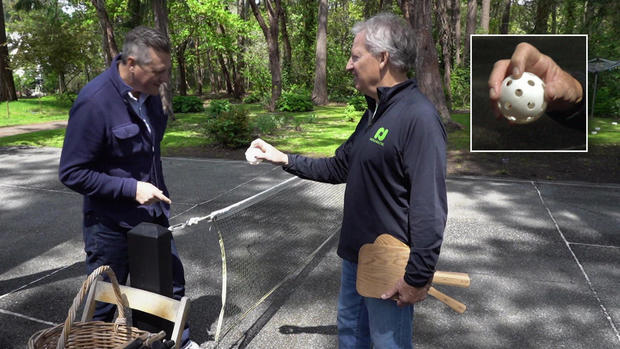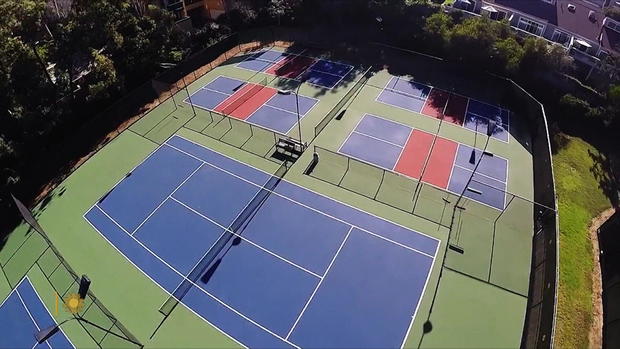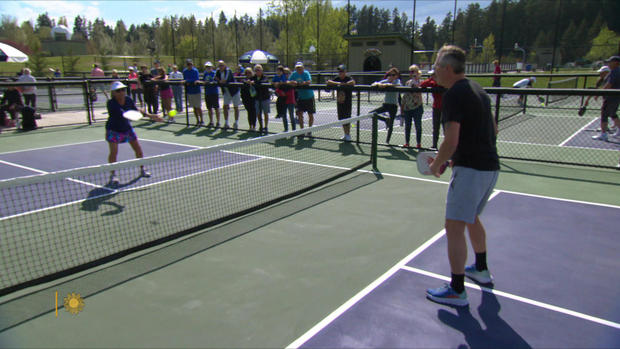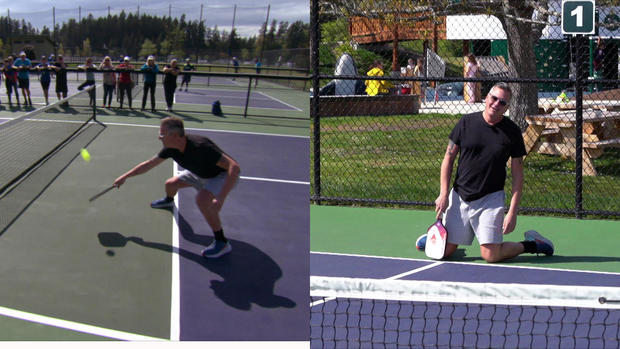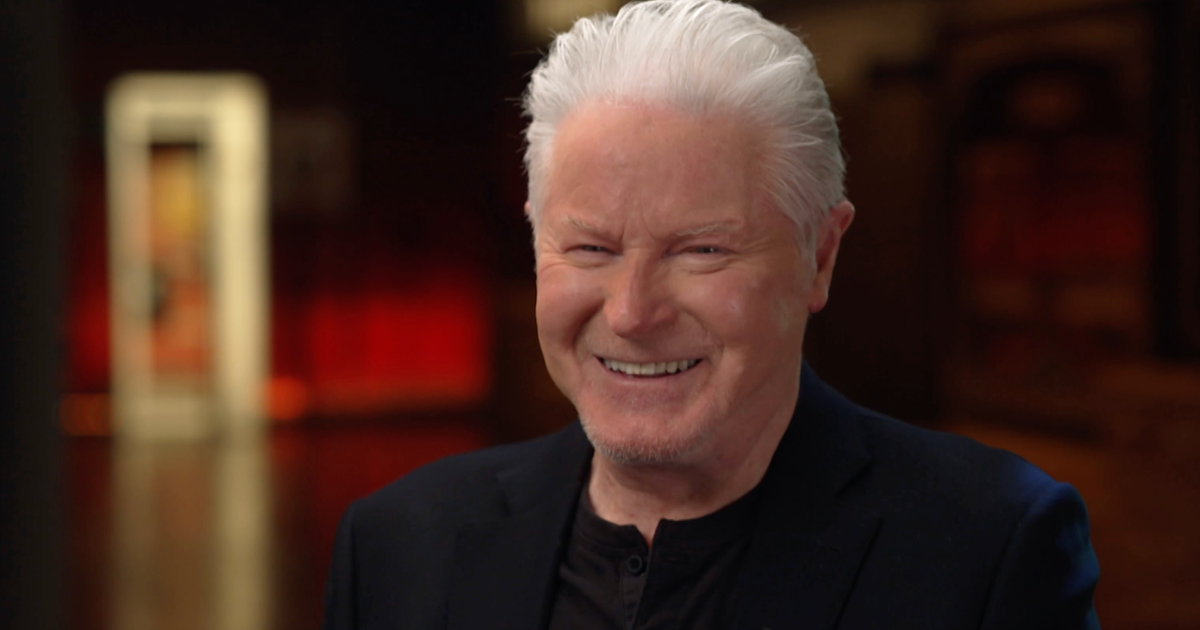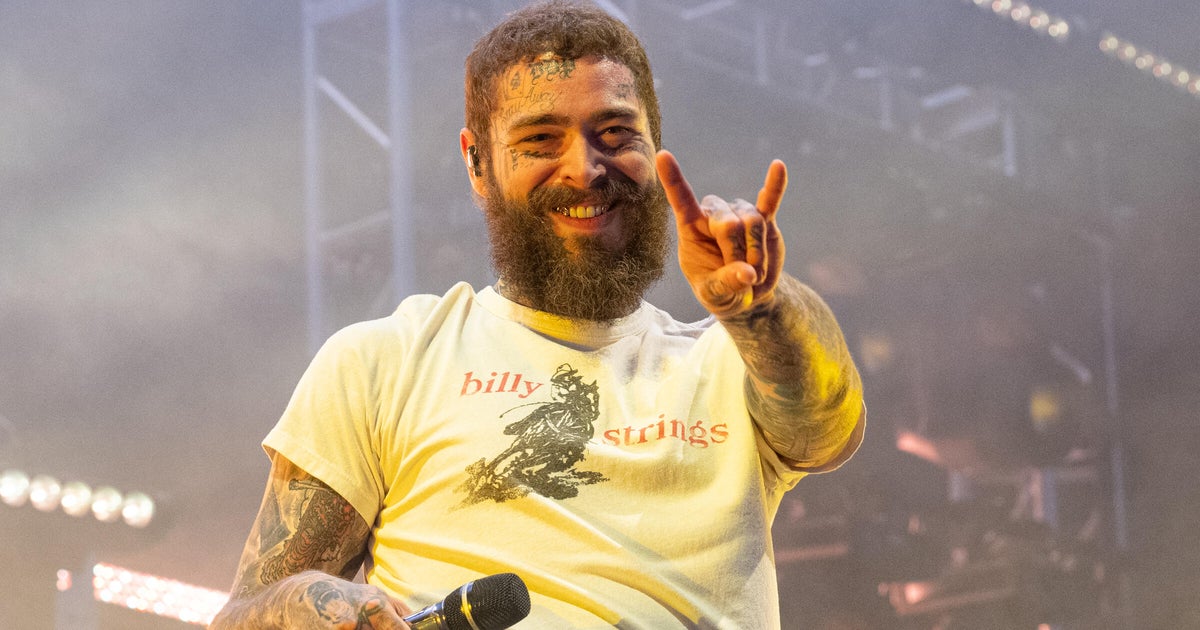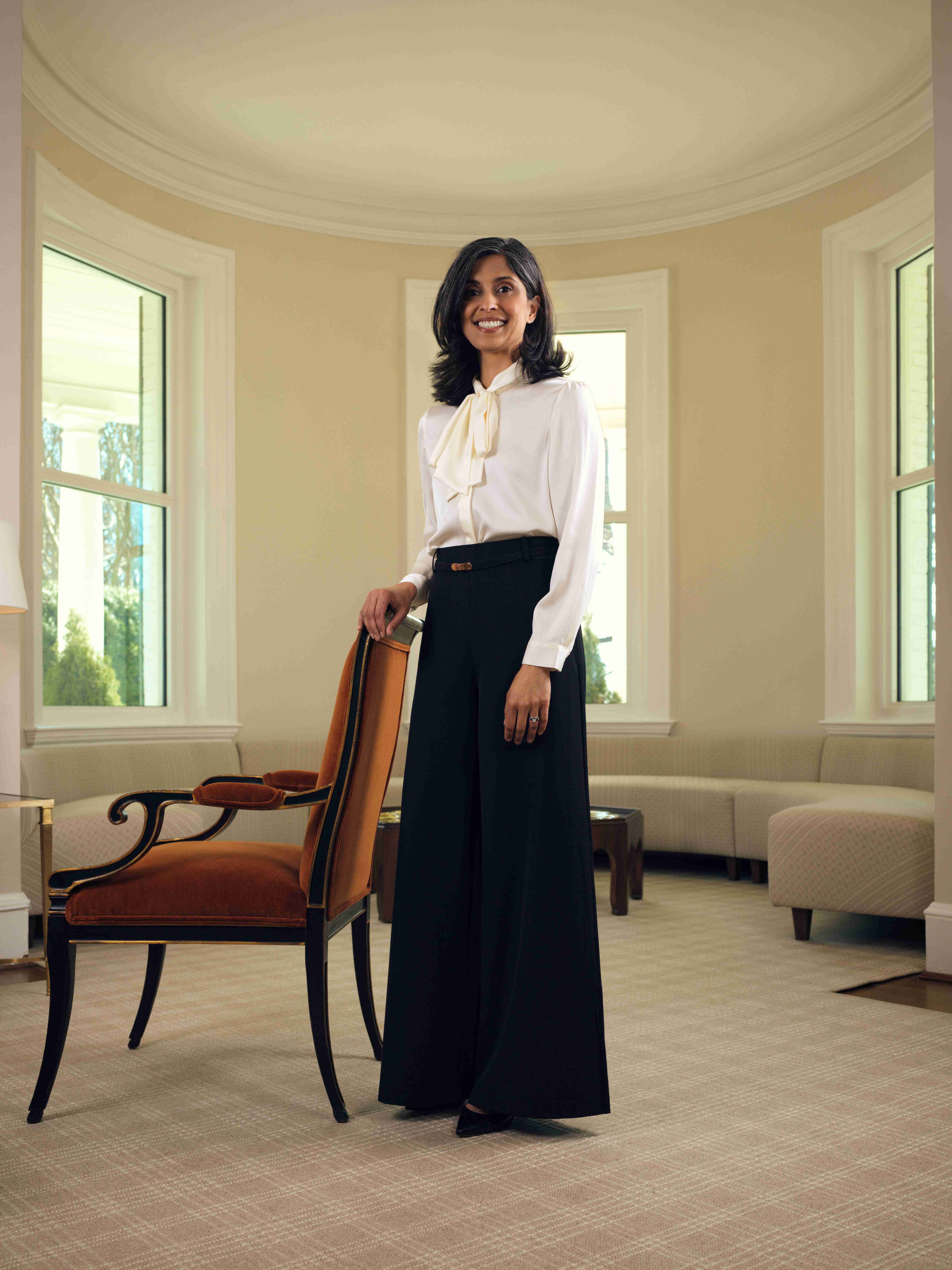Picking up pickleball
It all started more or less out of necessity back in 1965, on Bainbridge Island, Washington, when a couple of neighborhood dads, Bill Bell and Joel Pritchard, were looking for something – anything – to keep their bored kids entertained. They had some pieces of wood, a plastic ball, and a badminton court, so they made up a game on the spot and named it "Pickleball."
David McCallum showed correspondent Luke Burbank the ball used in that inaugural game. "This is the Cosom Fun Ball," he said. "You can see, 'Safety Play' is the little label on there."
McCallum offered one version of how the game came to be named Pickleball: "The Pickles version of the naming is that Pickles would run around here in these bushes and grab the ball, so they named it after Pickles the dog."
Burbank said, "But there's also some speculation that Pickles was born after the game was invented, which would make it impossible."
"It would!"
While the origin of the sport's name might be complicated, the game itself was actually pretty simple.
Scott Stover and his wife, Carol, own the house and the court where the sport was invented: "They came up and found the badminton court," he said. "Of course, you had a raised net. They had a ping pong paddle and a wiffle ball, and started trying to hit the ball. And they lowered the net, and figured the game of pickleball out."
They grew up spending their summers just down the road, and watched – like McCallum – as pickleball took off within their tiny island community. "And it started growing, you know, very small," said McCallum. "But they needed paddles. Not everybody has a bandsaw in their basement. So, they would call Barney to get paddles!"
"Barney" was David McCallum's dad, credited as the sport's third founder. By day, he ran an envelope company; by night, he started making (with son's David's help) pickleball paddles for a growing fan base, first on the island, and then for the wider world.
Which is where Doug Smith came in: "The best thing we could do is be able to have a demonstration court and then get the teachers out there," he said.
Smith's task was to try and convince phys ed teachers to add pickleball to their curriculum, which meant going to teaching conferences and letting them try for themselves. "The teachers would be playing all during the conference," he said.
The plan took time, but it worked, taking pickleball from a game with a funny name invented in someone's backyard to what is currently the Fastest Growing Sport in America.
By some estimates nearly five million people in the U.S. have taken up pickleball, and that's having a profound cultural effect, from the re-purposing of many tennis courts, to how retirement communities are being built, to the themed restaurants, and, of course, the hyper-competitive pro leagues.
Jennifer Lucore is a Pickleball Hall of Famer, who (along with her doubles partner, Alex Hamner) has won five national championships. Meanwhile, Burbank (who has exactly zero world pickleball championships) last played the game 30 years ago during "Racket Sports" class at Nathan Hale High School in Seattle. So, he figured he'd get a refresher from Lucore.
Fans of the game say the secret sauce of pickleball is that anyone can learn the game and start having fun in 30 minutes. So, Burbank and "Sunday Morning" producer John Goodwin decided to test that theory.
They had a few victories – a lot of defeats – and also, a lot of fun. Not bad, for a game invented by a couple of desperate dads that's now taking the nation by storm.
For more info:
- USA Pickleball Association
- How to Play Pickleball (pickleball.com)
- Pickleball Hall of Fame
- International Federation of Pickleball
- World Pickleball Federation
Story produced by John Goodwin. Editor: Ben McCormick.
